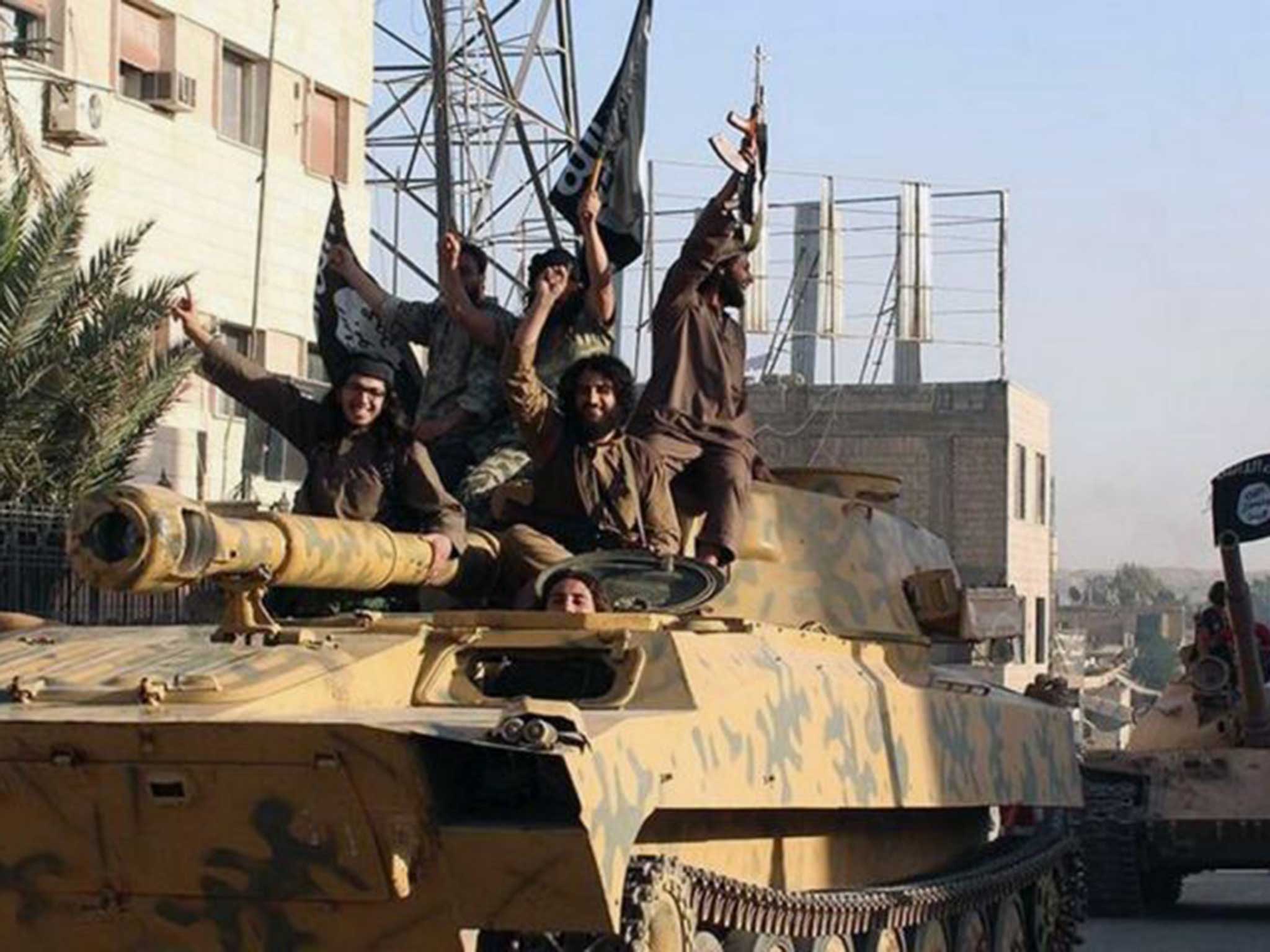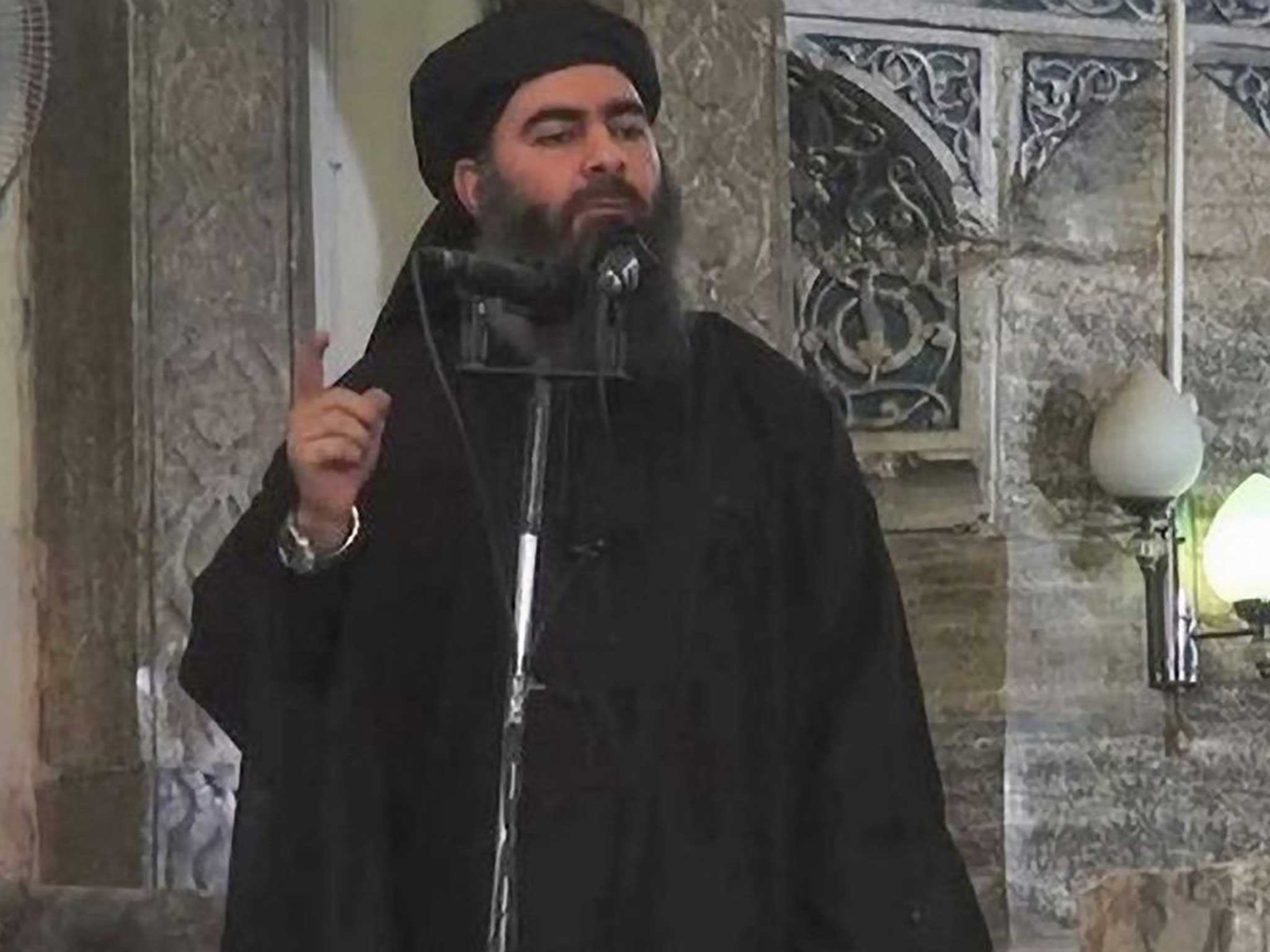Life under Isis: For residents of Raqqa is this really a caliphate worse than death?
The Islamic State has embedded itself in the fabric of Raqqa, Syria – and first-hand accounts suggest that it’s not all bad news

Your support helps us to tell the story
From reproductive rights to climate change to Big Tech, The Independent is on the ground when the story is developing. Whether it's investigating the financials of Elon Musk's pro-Trump PAC or producing our latest documentary, 'The A Word', which shines a light on the American women fighting for reproductive rights, we know how important it is to parse out the facts from the messaging.
At such a critical moment in US history, we need reporters on the ground. Your donation allows us to keep sending journalists to speak to both sides of the story.
The Independent is trusted by Americans across the entire political spectrum. And unlike many other quality news outlets, we choose not to lock Americans out of our reporting and analysis with paywalls. We believe quality journalism should be available to everyone, paid for by those who can afford it.
Your support makes all the difference.In the cities and towns across the desert plains of north-east Syria, the ultra-hardline al-Qa'ida offshoot Islamic State of Iraq and the Levant (Isis) has insinuated itself into nearly every aspect of daily life.
The 'Islamic State' group, infamous for its beheadings, crucifixions and mass executions, provides electricity and water, pays salaries, controls traffic, and runs nearly everything from bakeries and banks to schools, courts and mosques. While its merciless battlefield tactics and the imposition of its austere vision of Islamic law made headlines, residents say much of its power lies in its efficient and often deeply pragmatic ability to govern.
Syria’s northern province of Raqqa provides the best illustration of its methods. Members hold up the province as an example of life under the Islamic 'caliphate' they hope will one day stretch from China to Europe.
In the provincial capital, a dust-blown city that was home to about a quarter of a million people before Syria’s three-year-old war began, the group leaves almost no institution or public service outside its control. “They are doing massive institutional work. It is impressive,” one activist from Raqqa, who now lives in a border town in Turkey, said.
Residents, Isis fighters and even activists opposed to the group described how it had built up a structure similar to a modern government in less than a year under its chief, Abu Bakr al-Baghdadi.
The group’s progress has alarmed regional and Western powers – last month Barack Obama called it a “cancer” that must be erased from the Middle East as US warplanes bombarded its positions in Iraq. But Isis has so embedded itself into the fabric of life in places such as Raqqa that it will be all but impossible for US aircraft – let alone Iraqi, Syrian and Kurdish troops – to uproot it through force alone.
Last year, Raqqa became the first city to fall to rebels fighting to overthrow President Bashar al-Assad. They called it the “Bride of the Revolution”. A variety of rebel groups – from hardline Islamists to religious moderates – held sway, although Islamists dominated. Within a year, Isis had clawed its way into control, mercilessly eliminating rival insurgents.
Its critics were killed, disappeared, or escaped to Turkey. Alcohol was banned. Shops closed by afternoon and streets were empty by nightfall. Communication with the outside world was allowed only through Isis.
Rebels and activists who stayed largely “repented” – a process by which they pledge loyalty to Baghdadi and are forgiven for “sins” against Isis – and kept to their homes or joined the group. But after the initial crackdown, Isis set up services and institutions, stating it intended to use the area as a base in its quest to eradicate national boundaries and establish an Islamic “state”.
“Civilians who do not have any political affiliations have adjusted to the presence of Islamic State, because people got tired and exhausted, and also ... because they are doing institutional work,” one Raqqa resident opposed to Isis said.
Since then, the group “has restored and restructured all the institutions that are related to services”, including a consumer-protection office and the civil judiciary, the resident added.
In the past month alone, Isis fighters have broadcast images of themselves beheading US journalists James Foley and Steven Sotloff as well as captive Kurdish and Lebanese soldiers, and machine-gunning scores of Syrian prisoners.
But the group’s use of violence has not been entirely indiscriminate. It has often traded with businessmen loyal to Assad, for instance. According to one fighter, a former Assad employee is now in charge of mills and distributing flour to bakeries in Raqqa. Isis’s pragmatism, residents and activists say, has been vital to its success in holding on to captured land.
It has been helped by experts from overseas, including North Africa and Europe. To run Raqqa’s telecoms, Baghdadi has appointed a Tunisian with a PhD in the subject. Baghdadi has also separated military operations from civilian administration, and has appointed civilian deputies called “walis”– an official similar to a minister – to manage institutions.
Administrative regions are divided into waliyehs, or provinces, which, as with the case of the recently established al-Furat province, can span national boundaries. Fighters and employees receive a salary from a department called the Muslim Financial House, which is something like a finance ministry and a bank.
One fighter said poor families were given money. A widow may receive the equivalent of £60 for herself and for each child she has, he said. Prices are kept low. Traders who manipulate prices are punished, and shut down if they are caught again. The group has also imposed Islamic taxes on wealthy traders and families. “We are only implementing Islam, zakat is an Islamic tax imposed by God,” said a jihadi in Raqqa.

At the heart of the Isis system lies Baghdadi, who in June declared himself “caliph”, or ruler of all the world’s Muslims, after breaking with al-Qa'ida.
He is heavily involved in Raqqa’s administration, and has the final word on all decisions. Even prices set for local goods go back to him, locals say. Residents say he also approves executions and punishments for criminals.
By declaring the caliphate and setting up a “state”, Baghdadi aimed to attract jihadis and experts from abroad. Supporters say thousands have responded. Wealthy Islamists from across the world have sent money to Raqqa to support the caliphate, jihadis say.
According to Raqqa sources, the group maintains three weapons factories designed to develop missiles. Foreign scientists – including Muslims from China, fighters claim – are kept in a private location with bodyguards. “Scientists and men with degrees are joining the State,” said one Arab jihadi.
Isis has also invested heavily in the next generation by inducting children into its ideology, and accepts women who want to fight; they are trained about “the real Islam”. Islamic education groups are held in mosques for newly arrived fighters, who, say militants in Raqqa, have flocked to Isis-controlled territory since Baghdadi declared the “caliphate”. “Every three days we receive at least 1,000 fighters... we are running out of places to receive them,” the Arab jihadi said.
Reuters